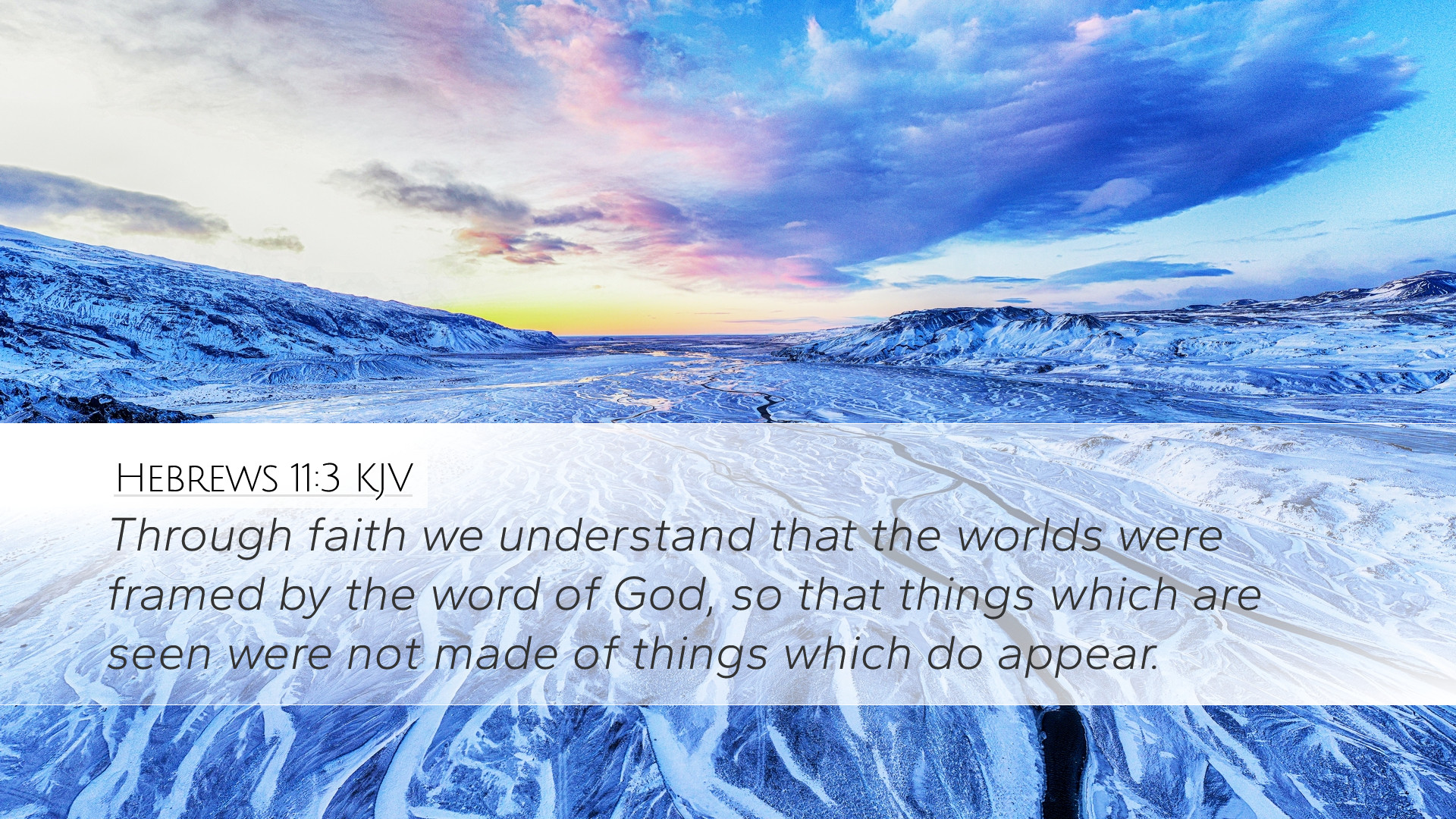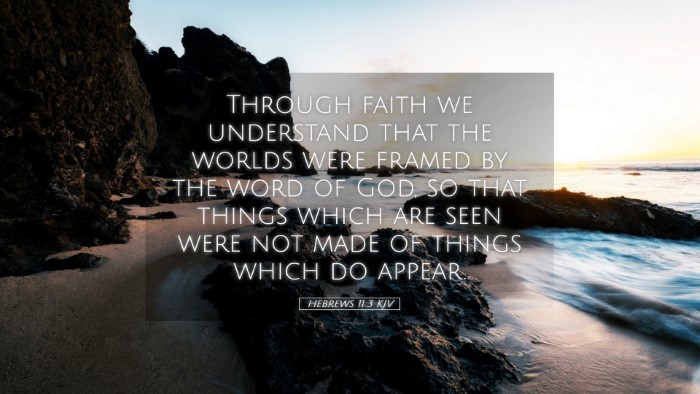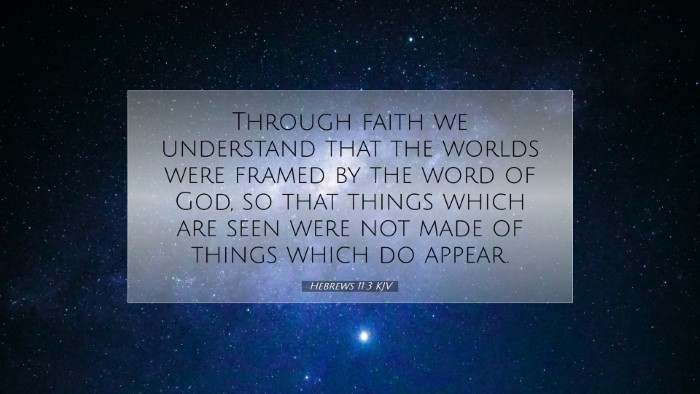Commentary on Hebrews 11:3
Verse Text: "Through faith we understand that the worlds were framed by the word of God, so that the things which are seen were not made of things which do appear."
Introduction
The epistle to the Hebrews presents a profound theological foundation for understanding faith, especially in light of creation. In Hebrews 11:3, the author emphasizes the role of faith in grasping the divine act of creation. It serves as a vital link between the seen and the unseen, inviting believers to comprehend the nature of God’s creative power. This commentary synthesizes insights from prominent public domain theologians, providing a holistic approach to understanding this profound scripture.
Faith as Understanding
Matthew Henry emphasizes that faith is not blind belief; rather, it is a reasoned trust in God’s word. The opening phrase, "Through faith we understand," indicates that true comprehension of creation comes not through scientific inquiry alone, but through a spiritual awakening that recognizes God as the ultimate origin.
- Faith's Role: Henry posits that faith provides us with insight into mysteries that surpass human understanding, grounding it in the authority of God's revelation.
- Understanding Creation: The assurance of faith allows believers to interpret the world through the lens of God’s word, contrasting sharply with secular views that rely solely on physical evidence.
The Creative Word of God
Albert Barnes highlights the significance of “the word of God” in this verse. The author of Hebrews asserts that God’s spoken word was the instrument by which the universe was created. Barnes draws attention to Genesis 1, noting that God said, “Let there be light,” and it was so. This sovereign command brings forth creation out of nothing.
- Divine Initiative: Barnes articulates that the act of creation was initiated by God’s will alone, demonstrating His omnipotence and authority.
- Illusion vs. Reality: The statement that “the things which are seen were not made of things which do appear” challenges believers to recognize that the visible world springs from an invisible source.
Creation from Nothing
Adam Clarke explores the phrase, “the things which are seen were not made of things which do appear,” asserting the concept of creation ex nihilo—creation out of nothing. Clarke insists that this principle sets biblical theology apart from other creation narratives that may involve pre-existing chaotic matter.
- The Unique Nature of God: Clarke emphasizes that God’s ability to create ex nihilo underscores His uniqueness and the totality of His power, as He requires no external materials to bring forth creation.
- Implications for Faith: By acknowledging creation from nothing, believers are encouraged to trust in God’s power to intervene in their lives in ways that transcend material conditions.
Faith and Its Objects
As underscored in the broader context of Hebrews 11, the author presents a ‘faith hall of fame’ where various figures exemplify trusting God. The act of faith that acknowledges God as Creator is both foundational and transformative.
- Creation and Redemption: The connection between creation and the redemptive work of Christ highlights that the same faith that apprehends creation also embraces salvation. This seamless transition illustrates the comprehensive nature of biblical faith.
- Call to Belief: The passage beckons believers to step into a relationship where faith is a means of understanding both the physical universe and God’s providence in their lives.
Application for Believers
The theological insights from Hebrews 11:3 pose several applications for contemporary believers, pastors, and theologians:
- Encouragement in Doubt: In moments of doubt regarding creation, believers can find solace in the assurance that faith, rather than sight, is the pathway to understanding.
- Foundation for Apologetics: This verse serves as a springboard for dialogue around creation; it's a testament to the coherence of faith and reason.
- Inspiration for Worship: Recognizing God’s omnipotent role as Creator invites a response of awe and reverence in worship settings.
- Crisis of Faith: During crises, believers can be reminded of the trustworthiness of God's word in both creation and their lives, fostering resilience and hope.
Conclusion
Hebrews 11:3 embodies a profound assertion regarding faith and God’s creative power. Through the insights of Matthew Henry, Albert Barnes, and Adam Clarke, we understand that faith leads to an informed perception of the universe, presenting God as the omnipotent Creator. For believers, this verse challenges and encourages, positioning faith as the lens through which we comprehend both creation and our relationship with God.


